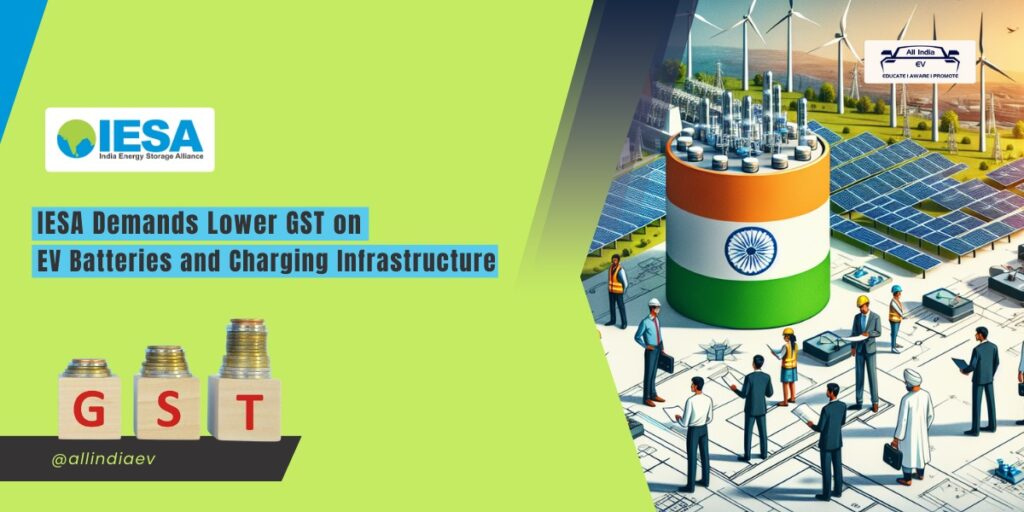
IESA Calls for GST Reduction on EV Batteries, Charging Infrastructure
The India Energy Storage Alliance (IESA) has presented a comprehensive wishlist to the government, advocating for significant tax reforms and increased incentives for the EV batteries and electric vehicle (EV) industries, aiming to bolster India’s sustainable energy sector.
India Energy Storage Week 2024 (IESW) is scheduled to take place in New Delhi from July 1–5. In anticipation of the event, IESA President Rahul Walawalkar has made crucial recommendations to expedite the nation’s shift towards sustainable energy alternatives.
List your business on All India EV exclusive business directory… (click here)
At the core of IESA’s proposals is the call for a reduction in the Goods and Services Tax (GST) rates on batteries and EV charging infrastructure.
“We are urging the government to bring all batteries under the 18 per cent GST bracket,” IESA
IESA President Rahul Walawalkar.
Currently, lithium-ion batteries are taxed at 18%, while other batteries face a higher 28 per cent rate. The industry body also advocates for lowering the GST on charging infrastructure services and battery swapping from the existing 28% to either 5% or 18%.
(You can now subscribe to our All India EV WhatsApp channel)
While praising government initiatives such as the Advanced Chemistry Cell Battery (ACC-PLI) and Auto-PLI schemes, IESA pushed for further expansion of Production-Linked Incentive (PLI) schemes to cover battery components and raw materials processing.
The organisation also underscored the need for support in battery recycling initiatives and international collaborations to secure critical raw materials.
IESA’s recommendations extend beyond tax reforms, encompassing a broad spectrum of policy measures.
These include continued incentives for large-scale battery storage systems, streamlined regulatory processes for clean energy projects, and innovative financial mechanisms to overcome the high upfront costs associated with EVs and charging infrastructure.
Emphasising the importance of research and development, the industry body called for greater investment in innovation to drive down costs and improve the efficiency of clean energy technologies.
IESA also stressed the need for public-private partnerships and skills development programs to support the growing clean energy sector.
Click here for more such informative insights
As India continues its push towards a greener future, these recommendations from IESA could play a crucial role in shaping the country’s energy landscape. With the IESW 2024 on the horizon, all eyes will be on the government’s response to these industry demands.




